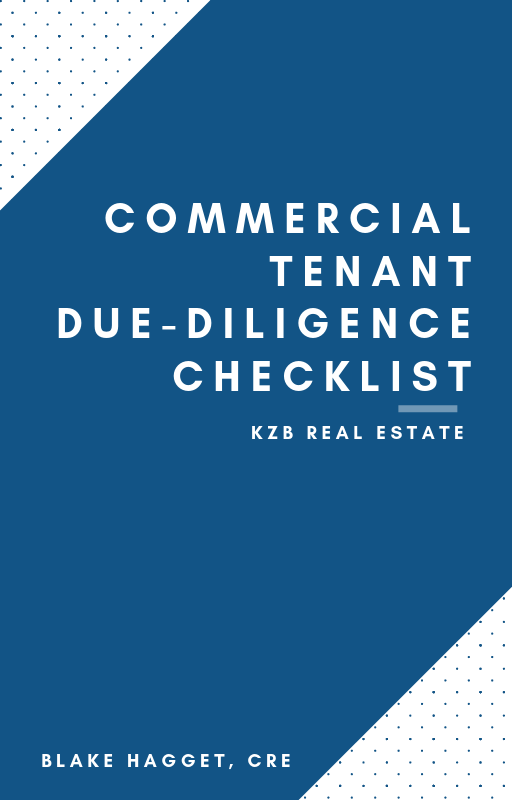Renting Commercial Real Estate in Boise

Whether you’re launching a new business or expanding an existing one, signing a lease can be a worthwhile step for any business owner. However, before you put your signature on paper make sure you know the ins and outs of the commercial real estate world.
Renting Commercial Property Checklist
Making a bad commercial real estate decision can drain down your cash flow and force you to break your lease agreement, which may have severe consequences on your business. Here are the most important factors you should consider before committing to a commercial property.
Location Related to Target Customer
Analyze the area, check if it fits your business, and get a good idea of your potential clientele. Location plays a vital role in the success of small businesses, so when you’re hunting for the right properties, take the time to research if the location is convenient for your customers.
Also, if your current lease is ending soon, make sure you plan and take time to research listings because, sometimes, finding the right commercial property can take two years or longer.
When it comes to choosing a business location, it’s also essential to check the condition of the facilities. Essential services like plumbing and electricity are costly to upgrade and they can quickly turn the investment from profitable to unprofitable.
Lease Duration and Flexibility
Commercial landlords prefer longer lease terms, and, typically, commercial lease contracts last between three to five years. The duration of your lease is an important aspect of the agreement because if you need to close your business, a long lease can complicate the process.
So, what should be the maximum length of your lease duration?
This depends on your current business and project growth. Naturally, most businesses want to settle in a commercial space for the next decade, but you need to calculate the risks before you put your signature on such a long contract. Some landlords may be willing to sign shorter leases in exchange for a higher rent.
Market Rates
If you want to use your time wisely, don’t just scroll through multiple listings looking for a property that suits your business. To make the most out of your research always compare market rates in different areas. Once you find a suitable unit for your business, knowing the market rates will help you negotiate a good offer. If you can prove to the property owners that similar properties in the area are cheaper, you may swing a good deal and save some cash.
Tennant Requirements to Rent a Commercial Space

Qualifying for a commercial lease is different for every property and it depends on the landlord’s requirements. Usually, landlords consider several factors before signing a contract, factors such as credit history, growth projection, income and loss statements of the business. When signing leases with new and small businesses, landlords may require personal guarantees from business owners.
Landlords require proof of liquidity and a solid business plan, so they can be sure that the property will be rented for the specified period. Another factor landlords consider is whether your business fits their facility.
For example, a property owner with a vacant space in a shopping center packed with luxury retailers would prefer to make a contract with a business that sells products and services that market to high-end clients.
What Are the Most Common Commercial Lease Agreements?
There are three main types of commercial leases: gross lease, net lease, and modified gross lease.
Gross Lease
A gross lease is a flat rant fee that covers the rent, taxes, insurance, and maintenance expenses. As a result, usually gross leases are high, but they protect the tenant from any incidental charges that may occur. This is the most common type of commercial lease agreement for retail and office buildings.
Net Lease
A net lease is a contractual agreement between a landlord and a tenant in which the lessee pays the rent and a portion of property taxes, insurance fees, and operating costs. In this type of contract, tenants are expected to pay for all costs associated with the property. Unlike a gross lease where the tenant pays a flat fee and the owner takes care of all additional costs, a net lease requires the tenant to take care of the property as if they are the actual owner.
Modified Gross Lease
A modified gross lease is a type of contract that shares characteristics with both gross and net lease agreements. This is also a contract that provides more space for negotiating between the property owner and the tenant. For example, a modified gross lease might require a lessee to pay a fixed rent and maintenance costs while the insurance costs are negotiated to be the landlord’s responsibility.
Landlord’s Duties In A Commercial Lease

Landlords need to meet several responsibilities if they want to become eligible to rent commercial space. Every property owner needs to comply with the governmental standards of safety, habitability, and accessibility. If a landlord leases a property that doesn’t meet a certain standard, they can face legal repercussions. Depending on the type of lease agreement, landlords are required to take responsibility for maintenance costs or insurance coverage.


